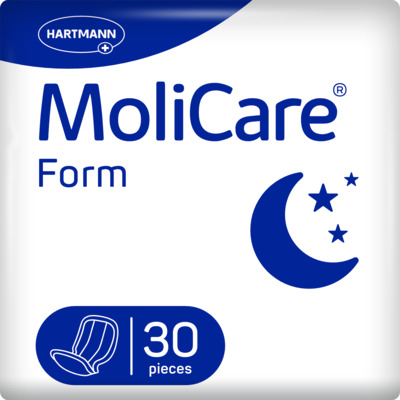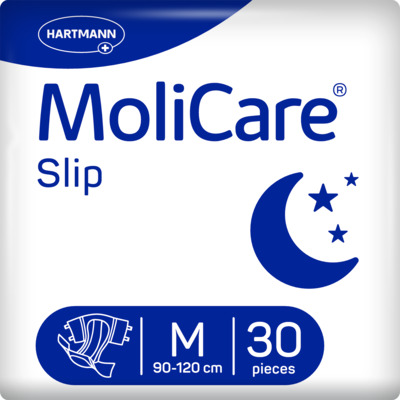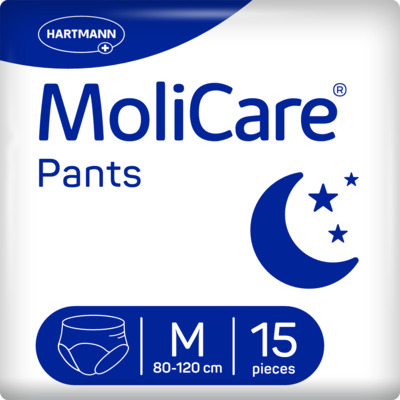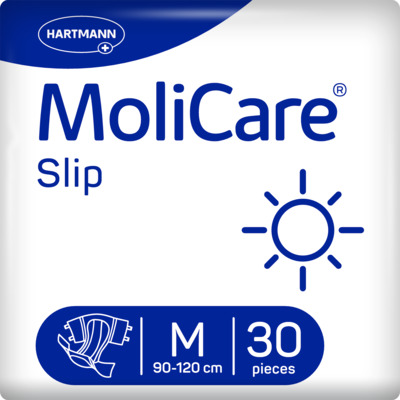Incontinence Advice
Dementia Incontinence: Causes, Symptoms, And Solutions

What Causes Incontinence With Dementia
Dementia is associated with cognitive decline, and affects a substantial portion of the elderly population, and among its many challenges, incontinence is a common issue. A recent study in 2021 revealed that more than 50% of people with dementia experience urinary symptoms, including urinary incontinence.
Cognitive decline plays a pivotal role in the development of incontinence in people with dementia. As dementia progresses, those affected may lose the ability to recognise when they need to use the toilet or may forget the location of the facility entirely. This cognitive impairment can lead to unpredictable urinary or faecal accidents.
Identifying the root cause of incontinence is crucial for effective management. Some cases may have underlying medical causes that are treatable. Consulting a healthcare professional is essential to determine if medical conditions are contributing to incontinence. Common medical conditions associated with incontinence in dementia patients include urinary tract infections, constipation, prostate problems, diabetes, stroke, and muscular disorders like Parkinson's disease. Additionally, physical disabilities that hinder a person from reaching the toilet in time can exacerbate the issue.
Several factors can increase the likelihood of incontinence in people with dementia. These factors include being overweight, as excess weight can put additional pressure on the bladder, and age, as older adults tend to have weaker bladder muscles. Pregnancy, childbirth, and menopause can also affect the pelvic floor and bladder muscles. In men, an enlarged prostate or prostate surgery can be contributing factors too. Certain medications may lead to incontinence, although some can exacerbate dementia symptoms.
While medications are available to manage an overactive bladder, carers should be aware that some medication can exacerbate incontinence or dementia-like symptoms. Furthermore, you could consult the patient’s GP for advice if you suspect that medication is causing unwanted side effects. Knowing how to control incontinence smells is essential here too, since certain medications could exacerbate symptoms further.
Managing And Reducing Incontinence Episodes With Dementia
In order to manage and reduce the risks of incontinence whilst battling dementia, consider the following factors:

Dehydration:
Dehydration can exacerbate incontinence in dementia patients. When people do not consume enough fluids, particularly water, it can lead to urinary tract infections, which may trigger or worsen incontinence. Beverages like coke, coffee, and tea act as diuretics, which increase urine production and potentially contribute to incontinence. Therefore, caregivers should be mindful of which fluids to offer to dementia patients.
Environmental Considerations:
Environmental factors can significantly impact the occurrence of urinary or faecal accidents. Caregivers should take steps to ensure a supportive environment, including:
- Appropriate clothing: Choose clothing for the person with dementia that is easy to remove and put on. This simplifies toilet visits and minimises potential accidents. Consider using incontinence products like our molicare premium mobile to provide extra security.
- Bathroom accessibility: Make toiletry facilities easily locatable and identifiable. Clear signage can be especially helpful for those with dementia who may struggle with spatial orientation.
- Obstacle removal: Remove any obstacles or hazards between the person with dementia and the toilet. A clear path can facilitate quicker restroom visits.
- Support with mobility: For people with reduced mobility, reaching the toilet in time can be a challenge. Consider when someone is sitting and how long it may take them to reach the toilet and how much support they may need.
Tips for Caregivers:
Caregivers can employ several strategies and tips to reduce the frequency and impact of incontinence episodes. While not every approach will be equally effective for everyone, they can serve as valuable starting points:
Demonstrate understanding: Incontinence incidents can be embarrassing and distressing for those with dementia. Caregivers should adopt an understanding and empathetic demeanour. Ensure privacy, discuss accidents in a matter-of-fact manner, and refrain from making the person feel guilty.
Effective communication: Communication is not limited to verbal cues either. Caregivers should encourage those with dementia to express their need to use the toilet. Look for non-verbal signs such as fidgeting or facial expressions that may indicate urgency.
Forward planning: Observing and understanding a person's toilet schedule can be invaluable. Caregivers can: monitor the individual’s toilet routine, create timely reminders for when they should visit the toilet as well as scheduling toilet breaks, identifying accident patterns in order to prevent future ones from occurring.
Hygiene protection: Maintaining hygiene for someone you care for helps to prevent urinary and skin infections, and is very important for the dignity and well-being of the person.
Consider incontinence products: We offer a wide range of incontinence products which fits different body types, and can offer practical solutions for managing incontinence. Ensure to use skin care products when applying these pads to promote maximum comfort and less skin irritation.
Aid in urination: If the person experiences difficulty urinating, running the tap or providing water while they use the restroom may help stimulate urination.
Protective bedding: Using incontinence bed protection can safeguard bedding from potential accidents, making cleanups more manageable.
Skin Care Products
Explore our skin care products now
Bladder and Bowel Health:
A caregiver's role extends to promoting and maintaining bladder and bowel health in people with dementia. Ways to maintain bladder and bowel health for those with dementia include:
Fibre-rich diet: Provide a diet rich in fibre to support regular bowel movements.
Hydration: Encourage the consumption of 6–8 glasses of water daily to maintain proper hydration.
Nutrition: Offer a balanced and nutritious diet comprising fruits, vegetables, whole grains, limited fats, and lean proteins.
Avoid triggers: Advise against the consumption of caffeinated, carbonated, or alcoholic beverages, which can exacerbate incontinence. You could also consider integrating bladder-friendly drinks. Switching to decaffeinated drinks is an alternative for those that enjoy coffee or tea, since those with dementia prefer tea as they find it calming; removing tea would therefore be detrimental to their well-being.
Exercise: For those capable of physical activity, regular walks and staying active can help regulate bowel movements. People who remain physically active are better able to manage getting to the toilet themselves when they need to. Keeping the person with dementia as active as possible (without pushing them beyond their physical capabilities) is another effective strategy for carers to adopt.
Developing a toilet routine: Carers should prompt those with dementia to adopt a toilet routine that is individual to them.
Nighttime: For nighttime visits to the bathroom, consider placing a portable toilet chair near their bed. Motion sensor lights can be valuable in preventing accidents.
Responding to accidents: It's important to remember that those with dementia react differently to incontinence incidents. Some may find it distressing, while others accept it as part of their condition. You should always be empathetic, respectful, and have a genuine interest in improving their quality of life.
Respect Privacy: Ensure that the person's privacy is maintained throughout the process.
Manage Incontinence And Dementia
In conclusion, it is evident that incontinence is a significant challenge for those living with dementia, but with the right strategies and a compassionate approach, it can be effectively managed. By understanding the causes, anticipating needs, and creating supportive environments, caregivers can improve the comfort and dignity of those they care for. You can learn more here by reading about the loss of dignity in acute hospitals.
FAQs
What stage in dementia is incontinence?
Incontinence can occur in various stages of dementia, often becoming more common as the disease progresses.
How do you manage urinary incontinence in dementia patients?
Management includes regular toileting schedules, using absorbent products, promoting hydration, and consulting a healthcare professional for guidance.
What are 3 things to never do with your loved one with dementia?
Avoid arguing, criticising, or leaving them unsupervised in potentially dangerous situations.
How can I help a dementia patient with toileting?
Provide clear cues, maintain a consistent schedule, create a familiar toileting environment, and offer assistance with patience and dignity.
Sources
Juliebo-Jones, P., Coulthard, E., Mallam, E., Archer, H., J. Drake, M., (2021) Understanding the Impact of Urinary Incontinence in Persons with Dementia: Development of an Interdisciplinary Service Model. National Library of Medicine. [online] Available at: https://www.ncbi.nlm.nih.gov/pmc/articles/PMC8238624/ [accessed 09/11/23]
Nursing Times. (2023) Dementia, Incontinence, and the loss of dignity in acute hospitals. Nursing Times. [online] Available at: https://www.nursingtimes.net/clinical-archive/continence/dementia-incontinence-and-the-loss-of-dignity-in-acute-hospitals-13-03-2023/ [accessed 09/11/23]

MoliCare Form for Night
<h2>Large Incontinence Pads for protection at night </h2> <p>Having no control over your bladder and only being able to reach the toilet with help or not at all is particularly stressful at night. The simple and affordable MoliCare® Form Night solution provides relief while you sleep. The large incontinence pads provide reliable protection that helps those affected and carers to enjoy undisturbed sleep. </p> <p>Wear with net pants for heavy duty incontinence pads with MoliCare® Form Night Large Incontinence Pads replace your regular underwear. The absorbent core inside the large incontinence pads quickly locks away urine and ensures a pleasantly dry feeling on the skin, even during the longer wear time at night. </p> <p>MoliCare® Form Night helps to keep intimate skin healthy by preserving its natural pH value and protection. At the same time, the absorbent core neutralises unpleasant odours. </p> <p>MoliCare® Form Night are overnight large pads for incontinence designed for reliable protection during the night. You can recognise them by the moon on the packaging. They complement MoliCare® Form Day large incontinence pads which provide reliable protection during the day. </p> <h2>Who is MoliCare® Form Night suitable for? </h2> <p>MoliCare® Form Night large incontinence pads are suitable for women and men with moderate to heavy incontinence who are looking for a reliable solution for the night. They lose more than 200 ml of urine at night and are unable to control their bladder. The bladder empties unexpectedly large amounts of urine. </p> <p>Heavy-duty incontinence pads are suitable for users who are severely restricted in their mobility. Toileting is only possible with assistance - if the user is not bedridden. MoliCare® Form Night large incontinence pads are therefore also suitable for caring for relatives. </p> <h2>Affordable large pads for incontinence: effective protection through the night </h2> <p>Highly absorbent and with odour control, the large incontinence pads are also made from soft material for your comfort. </p> <p>MoliCare® Form Night are very skin-friendly. The slightly acidic pH value in the intimate area protects the skin from external contaminants such as urine. MoliCare® Form Night preserves this natural pH value and protects the skin. In combination with MoliCare® Skin solutions that clean, protect and care for skin, MoliCare® Form Night help to prevent irritation and skin damage in the intimate area. </p> <p>You usually need no more than two MoliCare® Form Day large incontinence pads during the day and one MoliCare® Form Night large pad for incontinence for the night. This gives you a low cost yet high-quality round-the-clock supply of large incontinence pads from HARTMANN. </p> <h2>We are HARTMANN </h2> <p>MoliCare® is HARTMANN’s extensive range of continence care products. For over 40 years, we have been developing effective, reliable products that help people manage the challenges of living with incontinence. Our aim is to provide the right solution for every need. </p>
MoliCare Slip for Night
<h2>Low cost adult nappy</h2> <p>MoliCare Slips for Day and Night are an all-in-one brief or adult nappy for both men and women providing reliable protection for moderate to severe levels of urinary incontinence. These slips are also ideal for use for people with feacal incontinence or double incontinence to provide a containment before cleansing.</p> <p>Skin feels dry and comfortable for improved well being thanks to the absorbent core with locks in liquids and neutralises odours. Safe and secure fit close to the body, skin friendly and dermatologically tested.</p> <h2>Choosing your size</h2> <p>Measure the waist at the largest width between the waist and hips and select the product size.</p> <p>Medium: 90 – 120cm</p> <p>Large: 120-150cm</p>
MoliCare Pants for Night
<h2>Incontinence pants for protection at night </h2> <p>Don’t let incontinence disturb your sleep. MoliCare® Pants Night is the simple and affordable solution for reliable protection at night. </p> <p>MoliCare® Pants Night incontinence pants for adults, also known as pull up panties, are worn like regular underwear and are available in sizes M and L. The absorbent core inside the incontinence pants quickly traps urine and ensures a pleasantly dry feeling on the skin even during the longer wear time at night. </p> <p>MoliCare® Pants Night help to keep intimate skin healthy by maintaining its natural pH value. At the same time, the absorbent core neutralises unpleasant odours. Soft and close-fitting double cuffs at the leg openings also prevent leakage. </p> <p>MoliCare® Pants Night are designed for reliable protection at night. You can recognise the nighttime incontinence pants by the moon on the packaging. They complement MoliCare® Pants Day incontinence pants which provide discreet protection during the day. </p> <h2>Who are MoliCare® Pants Night suitable for? </h2> <p>MoliCare® Pants Night are suitable for women and men with moderate incontinence who are looking for a reliable solution for the night. They lose up to 200 ml of urine at night and cannot always reach the toilet in time. <br /> <br /> They can go to the toilet independently or with a little help. MoliCare® Pants Night are suitable for urge incontinence. </p> <p>Highest wearing comfort and still affordable: MoliCare® Pants Night </p> <p>Thanks to fast absorption and odour-control, the incontinence pants provide reliable, comfortable protection while you sleep. MoliCare® Pants Night are extremely comfortable to wear. The soft, noiseless material means you will hardly notice the difference to regular underwear. </p> <p>MoliCare® nighttime incontinence pants are very skin-friendly. The slightly acidic pH value in the intimate area protects the skin from external contaminants such as urine. MoliCare® Pants Night help to maintain this natural pH value and protect the skin. </p> <p>You usually need no more than two MoliCare® Pants Day inco pants during the day and one pair of MoliCare® Pants Night incontinence pants for the night. This gives you a low cost yet high-quality round-the-clock supply of incontinence pants from HARTMANN Direct. </p> <h2>We are HARTMANN </h2> <p>MoliCare® is HARTMANN’s extensive range of continence care products. For over 40 years, we have been developing effective, reliable products that help people manage the challenges of living with incontinence. Our aim is to provide the right solution for every need. </p> <h2>Choosing your Size</h2> <p>Measure the waist at the largest width between the waist and hips and select the product size.</p> <p>Medium: 31-47 inches (80 – 120cm)</p> <p>Large: 39-59 inches (100-150cm)</p> <p> </p> <h2>Delivery service</h2> <p>Fast, reliable delivery service for all your essential <a href="https://www.hartmanndirect.co.uk/">HARTMANN Direct</a> incontinence products straight to your door. Take advantage of our convenient online ordering system and benefit from our price match promise, along with free delivery on orders over £50. </p> <p><strong>Need more help?</strong> Our friendly customer service team are waiting to help you choose the right product – call 0800 028 9470.</p>
